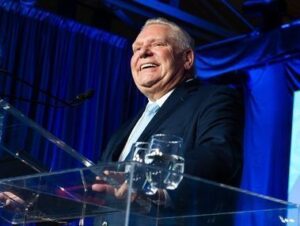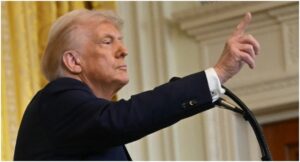Elder statesman, Professor Ben Nwabueze, has said that the ongoing campaign for restructuring of Nigeria is aimed at returning the country to the “true federalism of the 1960/1963 constitutions”, with regions as federating units.
Nwabueze, who is the chairman of the Project Nigeria Movement as well as The Patriots, made the comment in a statement made available to our correspondent in Enugu on Thursday.
In the statement, entitled, ‘Press statement on restructuring to mark our 57th Independence Anniversary,’ Nwabueze noted that the implementation of restructuring required a new constitution that would be adopted by Nigerians through a referendum.
Stressing the need to reduce the powers of the Federal Government, Nwabueze noted that restructuring, if implemented, would assuage demands for self-determination as championed by the Nnamdi Kanu-led Indigenous People of Biafra.
“Restructuring, as it is presently being demanded, seeks to revert our federal system to the true federalism of the 1960/63 constitutions, to further reduce the powers of the Federal Government as may be thought necessary.
“The intention, furthermore, is to assuage, to an optimal extent, the demand for self-determination or self-government consistent with the territorial sovereignty of the country.
“Self-determination connotes essentially, not independent government, but the right of each group, within the territorial sovereignty of the country as one state, to govern itself in matters that concern it alone, without undue control by the Federal Government; the control is oppressive because it is being exercised without due regard to the requirements of justice, fairness and equity. Restructuring is being demanded as a means of release from the federal yoke.”
The essence of restructuring, according to Nwabueze, is ‘self government,’ which, he explained, connotes true federalism.
Nwabueze explained the need for restructuring, stating that it was not aimed at breaking up the country.
He said, “The object of restructuring for which there is a widespread clamour among Nigerians is not to break up the country or to enable agitators to secede from its sovereignty and territorial integrity.
“Far from that, the object is, by reforming the governmental structures and attuning them to the needs and wishes of the people, to ensure that the immense diversity of ethnic nationalities comprised in the state will continue to co-exist together in peace, prosperity and progress as citizens of one country united by common interests, common aspirations and a common destiny.
“The clamour for restructuring must therefore be seen as a clamour for the setting up of appropriate platforms or fora to renegotiate suitable governmental structures for the pursuit and realisation of our common needs for development, good governance and national transformation.
“In short, the clamour for restructuring is more than a clamour for the reform of our governmental structures. This is only its primary focus. In its wider, more fundamental focus, it is a call for Nigeria to “make a new beginning” under a new constitution approved and adopted by the people at a referendum, a new politico-legal order that will cleanse the country of the rottenness that pervades it and enable it to chart a road map for its destiny or what has been referred to as restructuring of the mind.”
The elder statesman explained that, for it to be successful, restructuring should be led by the country’s President.
“This aspect of restructuring, which is as necessary as its primary focus, will need to be led by a President, as the elected leader of the people, imbued with the task for national transformation.
“The governmental structure that needs particularly to be reformed by restructuring is our federal system.”
“Federalism is commonly agreed to be a compelling necessity for the maintenance of peace, stability and development of Nigeria as one country. The 1960/1963 constitutions of Nigeria established a federal system with three (later four) regions each invested with sufficient autonomy to govern itself in matters that concerned it alone – internal self-government – without undue control by, or interference from the centre, thus giving each region the impetus and incentive to develop optimally in healthy competition with the others.”
Nwabueze further stressed that restructuring would address the question of resource control, which stemmed from “undue concentration of powers and financial resources at the centre.”
…….. Don’t forget to like The Drum Online Facebook page and always visit www.thedrumonline.blogspot.com for your news updates.
Contact us on +2348037122191 & princesegun98@yahoo.com for your advert placements….. Thanks you.







